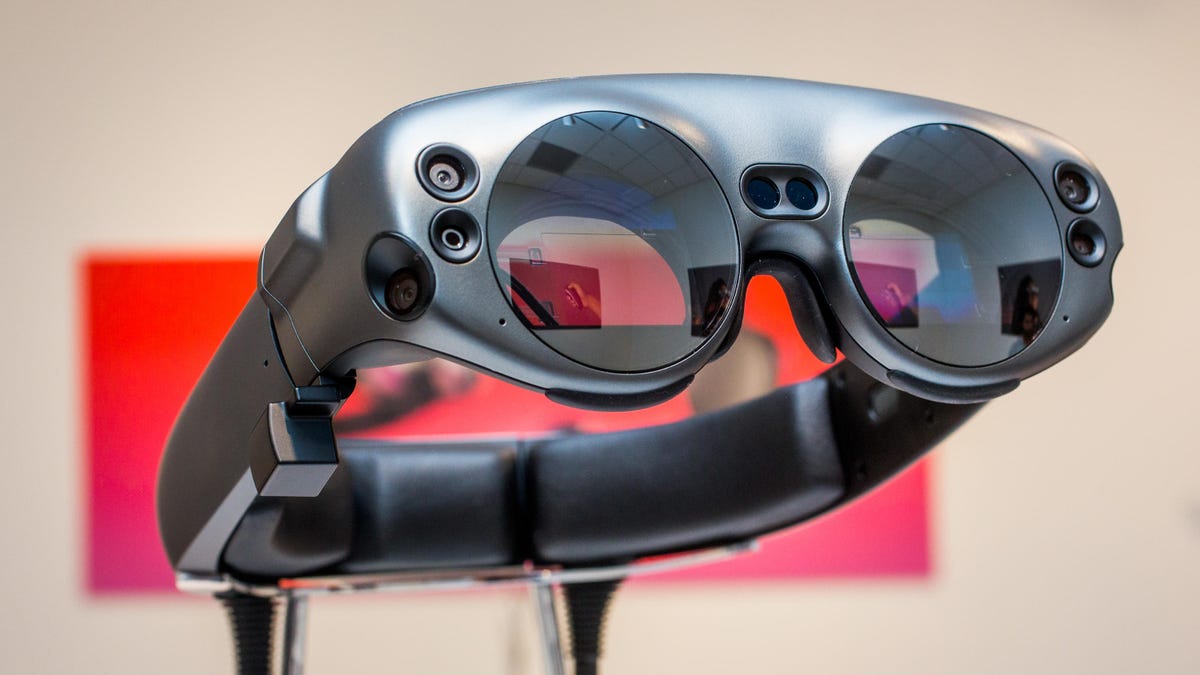Magic Leap accuses ex-employee of stealing AR technology for Chinese company
Former software engineer's new company used confidential information to create competing AR glasses in just two years, the startup alleges in a lawsuit.

Magic Leap One, the startup's AR glasses, were released after years of development and billions of dollars in investments.
Magic Leap , a mysterious maker of augmented reality glasses, has filed a lawsuit accusing a former employee of stealing its technology to create a similar device for China. The lawsuit, filed Monday in a Northern California federal court, alleges the former software engineer used confidential information to create AR glasses in just two years, while Magic Leap's process took much longer.
Chi Xu, who left the company in 2016, used the information he gleaned at Magic Leap to help the company he formed in China to "quickly develop a prototype of lightweight, ergonomically designed, mixed reality glasses for use with smart phones and other devices that are strikingly similar" to the company's confidential designs, the Florida-based company said in its lawsuit.
The lawsuit comes amid heightening tensions between the US and China in a wide range of areas touching on technology and the economy. In recent year, the US has taken action against Chinese phone maker ZTE tied to international trade activities and against networking giant Huawei over national security concerns.
Unlike virtual reality, which promises to immerse goggle-wearing users in new and exciting digital worlds, AR overlays images and data atop the real world. Magic Leap spent $2.3 billion building its AR glasses, and after years of skepticism that the startup might be building the world's best funded vaporware, it finally released its headset last August.
While employed at Magic Leap, Xu "neglected his work duties" at the company while planning to use the confidential information he'd acquired at the company to create a competitor called Nreal, Magic Leap alleged in its complaint.
"Whereas Nreal purported to develop its Nreal Light product in under two years, Magic Leap developed its technology after extensive investment of time (multiple years), money (hundreds of millions of dollars spent on research and development) and human resources (hundreds of engineers)," according to Magic Leap's lawsuit.
The lawsuit, which names Nreal as a co-defendant, accuses Xu of breach of contract, fraud and unfair competition.
"We have heard about the recent media reports regarding Nreal and Magic Leap," Nreal said in a statement. "Nreal believes that these rumors and accusations are false and anticompetitive in nature. Without additional information we're not able to provide further comment."
Magic Leap didn't respond to a request for comment. Xu couldn't immediately be reached for comment.

